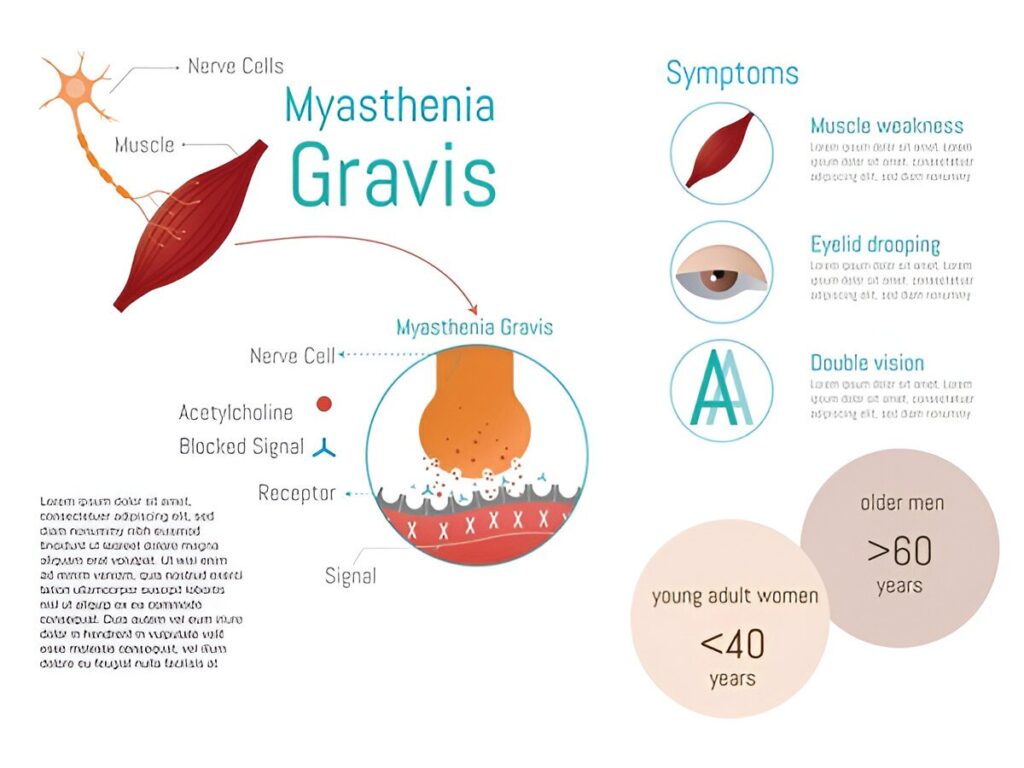Myasthenia Gravis (MG) is a chronic autoimmune neuromuscular disorder that causes weakness in the skeletal muscles. While medications and other therapies help manage symptoms, some patients may require surgical intervention for long-term relief. If you’re considering surgery for MG, understanding your options, potential benefits, and risks is crucial. In this blog, we’ll explore the surgical options available, who may benefit from them, and why patients often seek the Best Myasthenia Gravis Surgery in Delhi for optimal care.
Understanding Myasthenia Gravis and Its Impact
Myasthenia Gravis occurs when the immune system produces antibodies that block or destroy communication between nerves and muscles. This leads to muscle weakness, difficulty in movement, and, in severe cases, trouble breathing and swallowing. Common symptoms include:
- Drooping eyelids (ptosis)
- Difficulty in speaking and swallowing
- Weakness in the arms and legs
- Fatigue after minimal physical activity
- Shortness of breath due to weakened respiratory muscles
While medications like cholinesterase inhibitors and immunosuppressants help manage MG, some cases require a more definitive approach—surgery.
Surgical Options for Myasthenia Gravis
Surgical treatment is primarily recommended for patients with a thymoma (tumor of the thymus gland) or generalized MG. The most common surgical procedure is thymectomy, which involves the removal of the thymus gland.
1. Thymectomy
Thymectomy is the most widely accepted surgical treatment for MG. The thymus gland plays a role in the immune system and is believed to contribute to MG symptoms. Removing the gland can lead to remission or significant symptom reduction in many patients.
Types of Thymectomy Procedures:
- Transsternal Thymectomy: This traditional open surgery involves a sternotomy (cut through the breastbone) to access and remove the thymus gland. It is highly effective but requires a longer recovery period.
- Video-Assisted Thoracoscopic Surgery (VATS) Thymectomy: A minimally invasive technique using small incisions and a camera to guide the removal of the thymus. This method results in a faster recovery time and reduced complications.
- Robotic-Assisted Thymectomy: The most advanced technique, performed with robotic assistance, allowing greater precision, minimal scarring, and shorter recovery times.
- Extended Transcervical Thymectomy: A newer technique that removes the thymus through a small incision in the neck, reducing surgical trauma while maintaining effectiveness.
Is Surgery the Right Choice for You?
Surgery is not necessary for all MG patients. It is generally recommended for those with:
- Thymomas (tumors in the thymus gland)
- Generalized MG (affecting multiple muscle groups)
- Inadequate response to medications
- Young patients with early-onset MG
- Severe MG symptoms that impact daily life
However, not all patients are suitable candidates. A thorough evaluation by a neurologist and a surgeon specializing in MG treatment is necessary.
Benefits and Risks of Surgery
Benefits of Thymectomy:
- Significant improvement in muscle strength and function
- Reduced dependency on medications
- Potential long-term remission of MG symptoms
- Better quality of life
- Lower risk of severe myasthenic crisis episodes
Risks and Considerations:
- Surgical complications such as infection, bleeding, or reactions to anesthesia
- Recovery time varies depending on the surgical method used
- Not all patients achieve full remission, and some may still require medications post-surgery
- Risk of respiratory complications in certain cases
Finding the Best Myasthenia Gravis Surgery in Delhi
Delhi is home to some of the most advanced hospitals and experienced surgeons specializing in MG treatment. When choosing a medical center, consider:
- Experienced Neuromuscular Specialists: Ensure the hospital has a team of neurologists and thoracic surgeons with expertise in MG treatment.
- Advanced Surgical Techniques: Opt for centers that offer minimally invasive or robotic-assisted thymectomy for better outcomes.
- Post-Surgical Care and Rehabilitation: A well-established post-operative care program can aid in faster recovery and better management of MG symptoms.
- Patient Success Stories and Reviews: Consider hospitals with positive patient testimonials and high success rates.
Post-Surgical Recovery and Outlook
Recovery after a thymectomy varies depending on the type of surgery performed. Patients undergoing minimally invasive or robotic-assisted procedures generally experience faster recovery and shorter hospital stays compared to those undergoing open surgery.
Key Recovery Steps:
- Rest and Limited Physical Activity: Patients are advised to avoid strenuous activities for a few weeks.
- Regular Follow-Ups: Monitoring progress with the healthcare team is essential.
- Medication Adjustments: Some patients may require reduced medication dosages post-surgery as symptoms improve.
- Physical Therapy: Helps regain muscle strength and improve overall well-being.
- Breathing Exercises: Beneficial for patients who experienced respiratory issues before surgery.
- Healthy Diet and Lifestyle Changes: Supporting overall well-being and immune function can enhance surgical outcomes.
Conclusion
Surgical intervention for Myasthenia Gravis, particularly thymectomy, can be a life-changing option for many patients. However, it is crucial to consult with a specialist to determine whether surgery is the right choice based on individual health conditions. If you are considering surgical treatment, seeking the Best Myasthenia Gravis Surgery in Delhi ensures access to expert care, advanced surgical techniques, and comprehensive post-operative support. With the right approach, many patients experience significant improvement in their quality of life and long-term relief from MG symptoms. If you’re exploring surgical options, discussing your case with a leading neuromuscular specialist in Delhi is the best first step toward effective MG management.








Leave a Reply